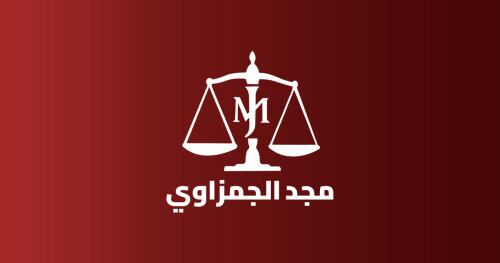Best Faith-Based Law Lawyers in Amman
Share your needs with us, get contacted by law firms.
Free. Takes 2 min.
List of the best lawyers in Amman, Hashemite Kingdom of Jordan

About Faith-Based Law in Amman, Hashemite Kingdom of Jordan
The Hashemite Kingdom of Jordan is known for its rich history and multicultural framework, where faith-based laws play a vital role in the legal system. In Amman, like the rest of Jordan, faith-based law primarily revolves around Islamic Sharia law, particularly pertaining to personal status issues such as marriage, divorce, inheritance, and family matters. These laws are embedded within the larger legal system governed by the Constitution of Jordan. Understanding how faith-based laws interact with civil laws is paramount for navigating legal matters in Amman.
Why You May Need a Lawyer
There are various situations where an individual may require legal assistance in faith-based law. Common scenarios include marital disputes requiring adherence to Sharia principles, inheritance claims needing mediation between religious and civil law, adoption cases, as well as business dealings that must respect religious practices. Navigating these areas often necessitates a deep understanding of both the religious and legal ramifications, making professional legal counsel essential.
Local Laws Overview
Faith-based laws in Amman exist within a dual legal system comprising civil and religious laws. The Sharia courts have jurisdiction over personal status matters for Muslims, while other religious communities have their own tribunals. Key aspects include:
- Marriage and Divorce: Governed primarily by Sharia law, with civil and religious procedures.
- Inheritance: Distribution follows a strict Sharia framework but may intersect with civil statutes.
- Religious Conversion: Legal implications differ significantly depending on conversion circumstance.
- Religious Freedom: Protected under the constitution, with considerations for state-approved religious practices.
Frequently Asked Questions
What is the primary source of faith-based law in Amman?
The primary source is the Sharia law, which governs personal status issues for Muslims.
Can non-Muslims be subjected to Sharia law in Jordan?
No, non-Muslims are typically not subject to Sharia law; they follow laws according to their religious communities.
How does Sharia law influence marriage and divorce?
Sharia law dictates marriage contracts, dowries, and the grounds and procedures for divorce among Muslims.
Are there legal protections for religious conversions?
Conversions are legally recognized, but the process and implications vary and may require judicial oversight.
How are inheritance disputes resolved?
Inheritance follows Islamic principles but may involve civil law to resolve disputes.
What role do faith-based courts play in Jordan?
Faith-based (Sharia) courts oversee personal status matters, while other tribunals serve non-Muslim communities.
Is legal representation allowed in religious courts?
Yes, particularly for complex cases where legal expertise is beneficial.
Can faith-based laws impact business transactions?
While primarily concerning personal status, religious observances can influence agreements, especially in partnerships.
Are religious freedoms protected by Jordanian law?
Yes, the constitution ensures religious freedom, allowing individuals to practice according to their faith.
How do religious and civil laws coexist in Jordan?
They coexist by operating within distinct jurisdictions; civil laws govern public and criminal matters, faith laws address personal status.
Additional Resources
For further understanding, consider reaching out to the following resources:
- Ministry of Justice - Oversees legal matters and court procedures.
- Sharia Court Directorate - Manages Islamic jurisdiction areas in personal affairs.
- Religious community centers - Provide guidance according to specific religious laws.
- Legal aid organizations - Offer support for individuals with limited resources seeking legal assistance.
Next Steps
If you find yourself needing legal assistance under faith-based law in Amman, consider these steps:
- Identify the specific nature of your legal issue and determine if it falls under faith-based jurisdiction.
- Seek initial consultation with a lawyer experienced in faith-based law to understand your rights and options.
- Gather necessary documentation related to your case to facilitate clear and efficient legal guidance.
- Consider contacting community centers or legal aid organizations for support and additional resources.
- Follow through with legal processes and heed professional advice to ensure compliance and resolution.
Lawzana helps you find the best lawyers and law firms in Amman through a curated and pre-screened list of qualified legal professionals. Our platform offers rankings and detailed profiles of attorneys and law firms, allowing you to compare based on practice areas, including Faith-Based Law, experience, and client feedback.
Each profile includes a description of the firm's areas of practice, client reviews, team members and partners, year of establishment, spoken languages, office locations, contact information, social media presence, and any published articles or resources. Most firms on our platform speak English and are experienced in both local and international legal matters.
Get a quote from top-rated law firms in Amman, Hashemite Kingdom of Jordan — quickly, securely, and without unnecessary hassle.
Disclaimer:
The information provided on this page is for general informational purposes only and does not constitute legal advice. While we strive to ensure the accuracy and relevance of the content, legal information may change over time, and interpretations of the law can vary. You should always consult with a qualified legal professional for advice specific to your situation.
We disclaim all liability for actions taken or not taken based on the content of this page. If you believe any information is incorrect or outdated, please contact us, and we will review and update it where appropriate.














